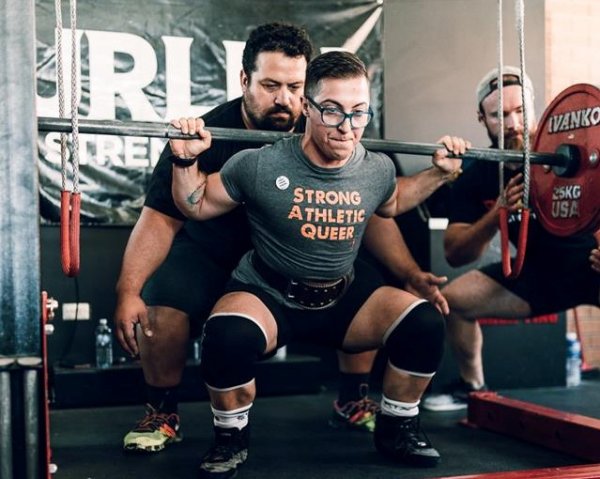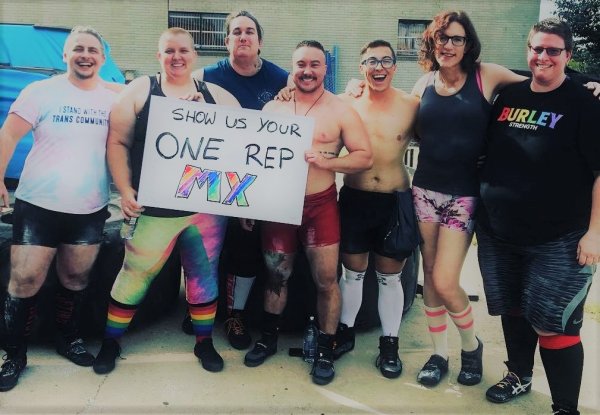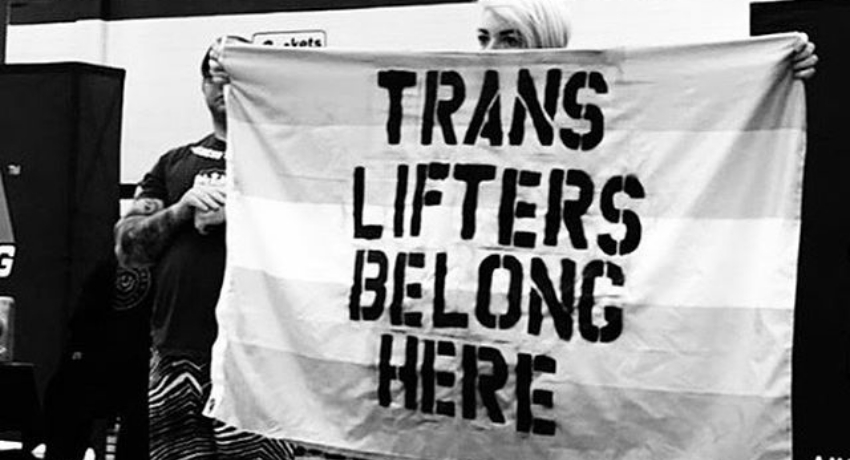On Sunday February 17th, in an old warehouse in an industrial suburb of Canberra, an Australian sporting first occurred: local gym Burley Strength hosted a powerlifting competition where athletes could choose not to identify as either male or female, with the introduction of a third ‘mixed’ (or Mx) gender category.
If you’re not aware of the current controversy surrounding transgender and intersex athletes in powerlifting, I don’t blame you. Despite the growing number of people participating in powerlifting over the past five years, it’s still a niche, strength-based sport. It’s not on television, there are very few athletes who do it professionally, and it has no single centralised federation.
Recently, USA Powerlifting banned transgender athletes from competing, citing fairness to other athletes
Recently, USA Powerlifting, one of the world’s biggest federations based on membership, banned transgender athletes from competing, citing fairness to other athletes. This sparked protests at the Minnesota state championships, with several athletes choosing to give up their allotted sixty second lifting time in order to acknowledge trans athletes who were unable to compete. It eventually led to State Representative Ilhan Omar asking Minnesota Attorney General Keith Ellison to investigate the ban as a human rights violation.

Image: Oppidan Visuals
Burley Strength announced their intention to introduce the Mx category before the controversy within USA Powerlifting unfolded, posting the following statement on their social media: “The new category, Mx, will open the door for transgender, gender expansive, and intersex athletes that don’t feel they have a place in sports due to a lack of understanding about non-binary identities.” Any athlete wishing to compete would be able to register in the Mx category, regardless of their gender identity.
“The new category, Mx, will open the door for transgender, gender expansive, and intersex athletes that don’t feel they have a place in sports due to a lack of understanding about non-binary identities.”
As the first novice (non-federation affiliated) competition of the year, the event normally draws a large crowd. Seven people registered to compete in the new Mx category, with some coming from interstate. Others signed up to powerlift for the first time simply for the opportunity to compete in a sport with their identity fully recognised.
A powerlifting competition is usually a day-long affair, with lifters competing in ‘flights’, taking turns to make three attempts at the squat, bench, and deadlift. The day of this comp started like many before it, with chairs set out in front of the platform for spectators, screens displaying information about each lifter, and the smell of chalk and coffee in the air. Seasoned and beginner competitors alike began warming up in the main gym, and a lifters’ briefing was given by the head judge.
But some differences were noticeable – many of the helpers and judges wore rainbow ‘Burley Strength’ logos across their chests, and some competitors did the same. The attempt cards, which competitors fill out to state the weights they will lift, had a section for ‘pronoun’ alongside standard sections for ‘name’ and ‘age’. The MC referred to some competitors as ‘they’, alongside ‘she’, and ‘he’, and the gym owner sported the colours of the transgender flag in his beard.

Image: Oppidan Visuals
When competitors registered under the Mx category stepped onto the platform to lift, they seemed to do so with a sense of pride. Of course, the usual comp day nerves were there too, but there was an energy in the room that lifted. Perhaps the crowd cheered a little louder. Perhaps the weights moved a little faster. Perhaps those who successfully made their lifts smiled a little more broadly.
One competitor wore a t-shirt with the slogan ‘Strong – Athletic – Queer’. Another sported the transgender flag on their competition soft-suit, while another wore the slogan ‘Be yourself – Be free’.
Burley Strength operates out of a warehouse on the outskirts of town, with little ceremony. This historic competition was not federation affiliated, and the competitors participated out of passion for a hobby, instead of out of pursuit for any monetary reward.
But on that Sunday, an Australian first happened in that old warehouse in an industrial suburb of Canberra
But on that Sunday, an Australian first happened there. A small community of people decided to draw a line, and make a change. Seven people were able to compete more fully as who they are. As the head coach said when awarding best lifter prizes at the end of the day, “This week is more inclusive than last week”.

Image: Jaxson Wearing




